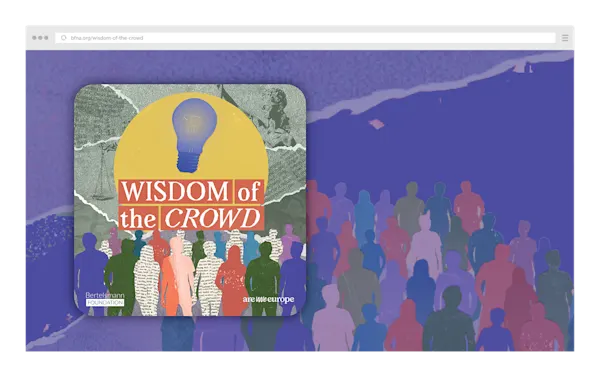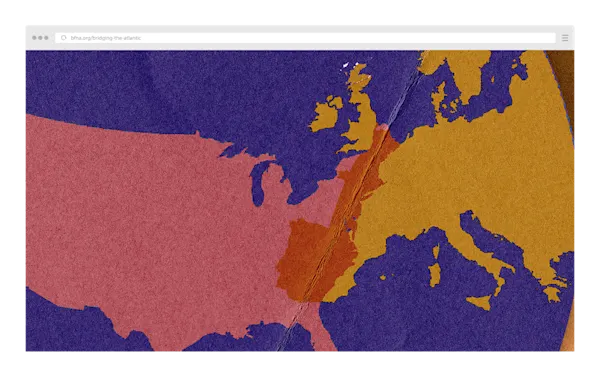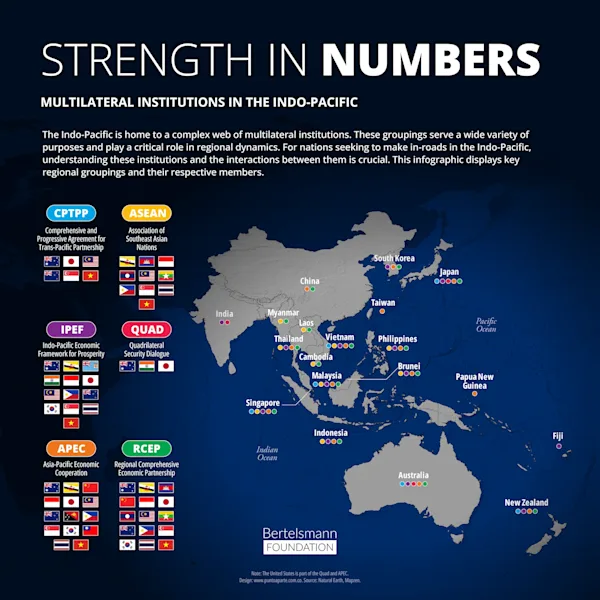
Politics & Society
As crises and trade disputes escalate, accompanied by the ascendancy of populist movements and fraying international alliances, a notable geopolitical shift is underway, causing a growing divergence between the United States and its European counterparts. We closely monitor the evolving dynamics of the transatlantic relationship, analyzing how political landscapes and societal responses on both sides of the Atlantic are adapting to the complex global challenges of the 21st century. Our analysis, web-based tools, crowd-sourced forecasting and multimedia content from short explainer videos to full-length documentaries bring these challenges to the fore, conveying both the personal impact and the broader geopolitical implications of the forces shaping transatlantic politics and societies.

Transatlantic Periscope
The Transatlantic Periscope is an interactive, multimedia tool that brings together expert commentary, high-quality media coverage, official policy documents, quantitative data, social media posts, and gray literature.

Transatlantic Barometer
The Transatlantic Barometer’s main fixture is a website that provides users with a synopsis of the policy positions and engagement of 31 key transatlantic actors: the United States, Canada, the United Kingdom, and the European Union, as well as its 27 member states.

RANGE
RANGE (Rethinking Assumptions in a New Geostrategic Environment) is a crowdsourced forecasting program focused on geopolitics and the transatlantic relationship.
Lithium Rising: The Race for Critical Minerals
Journey to the frontlines of the 21st-century resource scramble—from Bolivian salt flats to Congolese cobalt mines—uncover how lithium, cobalt, and nickel have become central to clean energy, national security, and economic power. Through vivid storytelling, original photography, and information from over 100 interviews, explore the global power plays and local struggles shaping the battery revolution. Who profits, who pays—and can we mine our way to a greener future without repeating the past?


Wisdom of the Crowd
Welcome to “Wisdom of the Crowd”, a podcast miniseries that explores the future of transatlantic relations. From democracy and geopolitics to climate change and technology, we take a closer look at the most pressing issues impacting the transatlantic alliance by interviewing top experts and using a strategy of crowd-sourced forecasting. We don’t just rely on experts and policy makers; we listen to a crowd of forecasters, and YOU, to determine the outcome of future events. We call that “the wisdom of the crowd”. Wisdom of the Crowd is produced by the Bertelsmann Foundation, Are We Europe, and Awe Studio. Sound design is done by Stefano Montali and the podcast artwork is by Tamara Tasić. This series is hosted by Rylie Munn.

Bridging the Atlantic
Bridging the Atlantic is a 6-part miniseries, created with Are We Europe, that will take stock of transatlantic relations today and examine it beyond the usual touchstones. After a tumultuous four years with the Trump administration, many following the transatlantic relationship are eager to understand how the transatlantic relationship can bounce back and become more resilient in the future. But a reset is perhaps not the right goal.
Transatlantic Trends 2022
The geopolitical turmoil of 2022 presents a multitude of challenges for the transatlantic community. From Russia’s invasion of Ukraine and China’s geostrategic ambitions to the worsening climate crisis and democratic backsliding, greater transatlantic cooperation is of paramount importance. In the face of such challenges, the transatlantic community has largely shown resolve, yet divergences in interests among partners remain.

Transatlantic Trends 2021
2021 opens a new chapter for the transatlantic relationship. The change of the U.S. administration as well as the political, economic, and societal implications of the coronavirus pandemic have redefined transatlantic policy dialogues. New priorities have emerged, as the calls for increased cooperation around climate change and common values signal an opportunity for an update of the transatlantic agenda.

Cross-Cutting Currents
The U.S. and Europe have an opportunity to engage closely on a broad range of challenges in 2022. To that end, the Bertelsmann Foundation has produced Cross-Cutting Currents, a transatlantic primer, as a foundational and introductory resource for those who seek a better understanding of the transatlantic relationship. This publication addresses the most pressing issues affecting five of the transatlantic community’s key actors—the U.S., Germany, France, Italy, and the UK.

